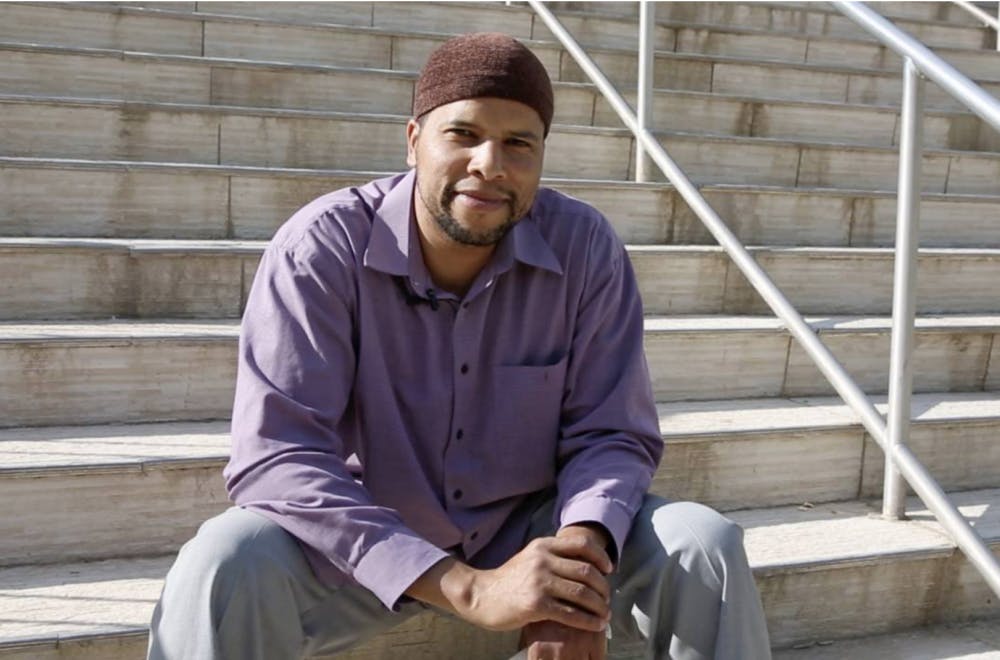On July 1, Imam Joshua Salaam started his tenure as Duke's new Muslim chaplain. Salaam is a hip-hop artist and U.S. Air Force veteran. The Chronicle spoke with Salaam to discuss his experience teaching Muslim youth and how he seeks to strengthen the Muslim community at Duke. This interview has been edited for length and clarity.
The Chronicle: What drew you to serve as a chaplain at Duke?
Joshua Salaam: I feel like I’ve been guided to where I am at today because I never thought I wanted to be a chaplain as a young adult. I got pulled into the youth director position because I was known to be good with young people.
After working with youth for a decade, I became familiar with chaplaincy and starting studying chaplaincy at Hartford Seminary and thought this is what the Muslim community needed. I was recommended by the cousin of a Duke Law student. When I started looking to be a chaplain, I found out Duke was still looking.
TC: What are your goals for your time here?
JS: A general goal that I have is to brand the Duke University Muslim experience as the premiere Muslim college life to attract Muslim students to apply here. I think it will be a working document. How are my experiences better, my relationships stronger, my faith helping me to be laser focused on what I want to do? I hope these questions can be answered. I want the brand to be institutionalized so—no matter who works on the Center for Muslim Life staff—the experience will be there.
TC: What are you looking forward to most as chaplain?
JS: I think growing and watching others grow [and] being at a university that recruits a lot of highly intellectual people. I think I’ll grow a lot, and I’m excited and interested to see how people change and why people change. I’m hopeful of breaking down stereotypes of other people on campus like, 'I never knew that Muslims did that or believe that.' I want people to be educated about the nuances of our faith tradition and us as people.
TC: What issues do you believe are the most pressing for American Muslim youth and which ones would you like to hone in on when working with Duke students?
JS: American Muslim youth have not been trained in logic and equipped with the ability to defend their beliefs and understandings in the public square. There’s a lot of things in the faith that they believe that they have been taught, but they don’t question ideas in the faith. A couple of examples are in apostasy.
A lot of Muslims are taught that the consequence of leaving Islam is death, but people don’t push back on that idea. Or that the punishment for cheating in your marriage is being stoned to death, and people don’t push back to that–even Muslims who come from Sharia school. If you are not taught that you can critically engage in the Hadith, you just accept what you hear. We don’t teach them how to critically engage in faith and in our pluralistic society.
TC: How do you hope to build a stronger Muslim community at Duke?
JS: By asking the students that, one of my goals is to establish a culture of healthy relationships. 'You guys also think we should be doing this at Duke?' But then people have different modes of learning and good teachers are taught to incorporate different modes of learning in lesson plans. So if the issue we are trying to get across is healthy relationships, we could get that lesson across through civic engagement, teaching a quranic lesson, etc.
TC: If you could talk to your younger self when you were between the age of 18 and 22, what advice would you have for him?
JS: I would have told myself to be more confident. I think an effect of coming up in school districts and neighborhoods where the environment wasn’t as established to succeed as other areas, was that you grow up believing that other students are smarter and that other kids have skills and intellect you don’t.
When you travel and when you run into high power people, you realize that there is not a big difference between what you can do and what they can do. A lot of it is the confidence that you can do it. I recently learned the definition of confidence—to move forward with faith. I learned that definition in a lecture of languages. I believe that you can have a whole lecture dedicated to confidence.
I would say to not tell your ideas to small-minded people. Most people will tell you it can’t happen. If you notice that, don’t mind those people.
Get The Chronicle straight to your inbox
Signup for our weekly newsletter. Cancel at any time.
Maram Elnagheeb is a Trinity sophomore. Her column, "here we go again," runs on alternate Tuesdays.

